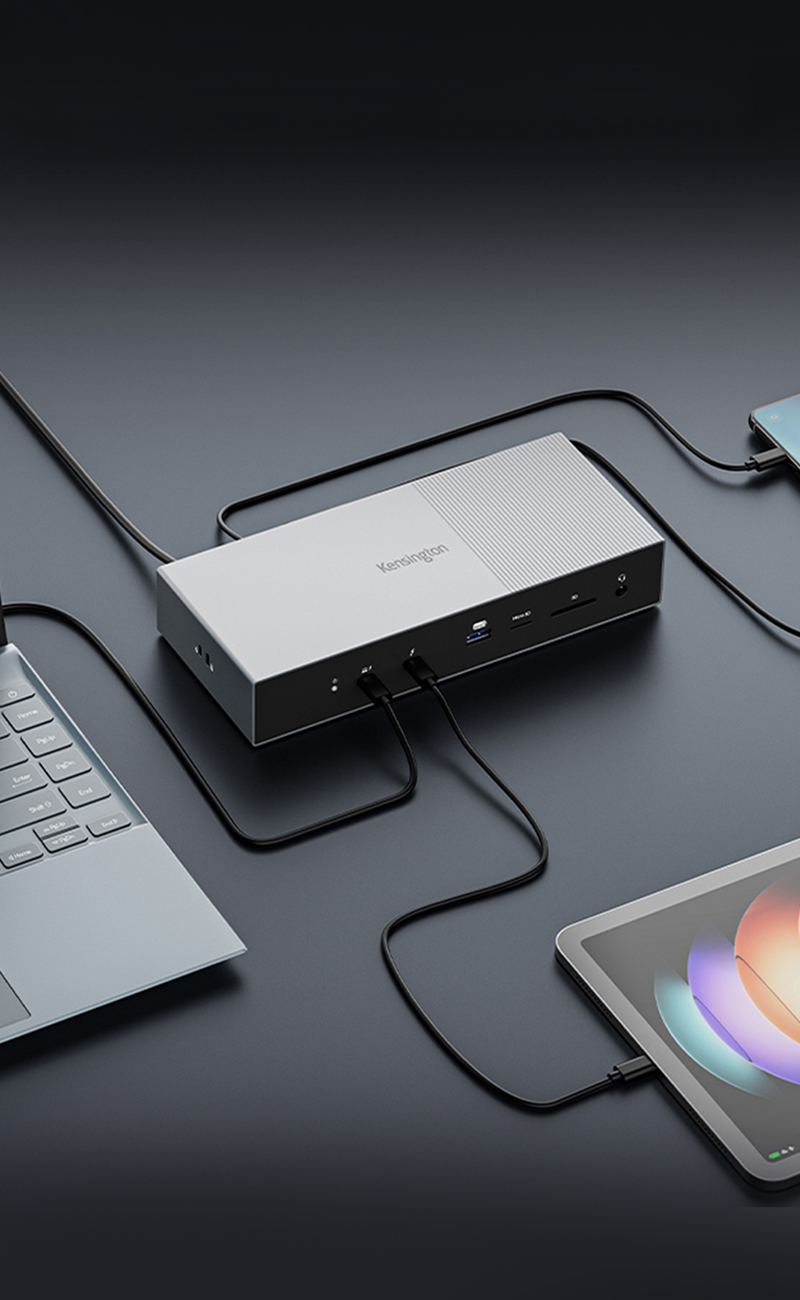Industry Study Finds that More than One-Third of IT Personnel Have No Physical Security Policy in Place to Protect Laptops, Mobile Devices, and Other Electronic Assets
Kensington®, a worldwide leader of desktop productivity and mobility solutions for IT, business and home office professionals and The Professionals’ Choice for device security for nearly 25 years, today announced findings from a U.S. survey on the security risks created by IT theft in the enterprise. Findings show IT theft in the office ranks at 23 percent—almost as high as theft in cars and transportation (25 percent), and more than theft in airports and hotels (15 percent) or restaurants (12 percent).
These findings are significant since IT may be lulled into a false sense of security that laptops and other electronic devices are safe on the premises when users are working in the office.
Conducted in July 2016, the Kensington IT Security & Laptop Theft Survey found that IT professionals across industries are not taking the necessary steps to ensure security of their enterprise environments. According to the survey, more than a third (34 percent) of IT personnel do not have a physical security policy in place to protect their companies’ laptops, mobile devices, and other electronic assets.
Other key findings of the Kensington survey include:
- More than half (54 percent) of survey participants do not currently utilize physical locks for IT equipment.
- Only 20 percent of IT personnel surveyed lock down non-computing equipment, such as projectors, hard drives, monitors, or speaker phones.
- When deploying laptop locks, management of keys is an important consideration for nearly two-thirds (65 percent) of IT. Most IT directors would prefer to have a master key so that if an employee loses his/her key, the laptop can still be unlocked.
“With research showing that a surprisingly high percentage of IT theft occurs in-house, IT directors and purchasers need to implement a formal physical security policy and take steps to secure their devices and the sensitive data they contain,” said Rob Humphrey, Director of Global Product Management, Security, Kensington. “Since studies confirm that well implemented security can significantly decrease laptop theft by as much as 85 percent, it’s important for IT personnel to consistently utilize physical locks for computing and mobile equipment to provide resistance to tampering and theft. Simple and secure device locking products can give organizations the added layer of protection they need to safeguard both their data and their mobile assets.”
Humphrey added that laptops are just one type of equipment that organizations need to protect—printers, hard drives, docking stations, and conference room phones are also good candidates to be secured. “Be sure to consider the full range of products to lock down, and take measures to prioritize their security as well,” said Humphrey. “And remember to ensure that the lock you choose includes a master key solution. The IT manager should have administrative access to a key to open all locks, with every user having an individual lock and key.”
Kensington invented the first lock more than 20 years ago, and consistently introduces new, innovative products and solutions designed to protect organizations’ most vital assets—computing devices and confidential data. Kensington’s patented slot designs are integrated into over 20 million leading computing devices including Dell®, HP® and Lenovo® for an additional layer of physical security for enterprises worldwide. Kensington's family of physical security accessories—including ClickSafe®, MicroSaver®, SecureBack™, Desktop and Peripherals locking kit, and the industry standard Kensington Security Slot™—is designed to address the escalating demand for protection against loss of devices and data.
Kensington’s Master Key Solutions remove the worry of financial data loss by ensuring a more secure office environment to minimize risk and maximize profit. Master Access Solutions offer more control over equipment while safeguarding employees from laptop and data theft. Individuals are allowed access to their own devices, while the IT manager has control of all of the equipment and data.
Notes to editors
About Kensington
Kensington is a leading provider of desktop and mobile device accessories, trusted by IT, educators, business and home office professionals around the world for more than 35 years. Kensington products empower people to dynamically interact with content, creating a better working experience for productive performance. In both office and mobile environments, Kensington’s extensive portfolio of award-winning products provides trusted security, desktop productivity innovations, and ergonomic well-being. Our core competencies in engineering, industrial design, product quality and responsive customer support make Kensington The Professionals’ Choice™.
Headquartered in San Mateo, California, Kensington operates as the technology division of ACCO Brands (NYSE: ACCO), one of the world’s largest designers, marketers and manufacturers of branded business, academic and consumer products, sold in more than 100 countries across the globe.
Kensington is the inventor and worldwide leader in laptop security locks, the acknowledged leader of Trackball innovation and offers a broad range of premium-branded desktop productivity solutions.
